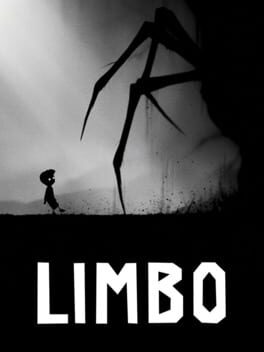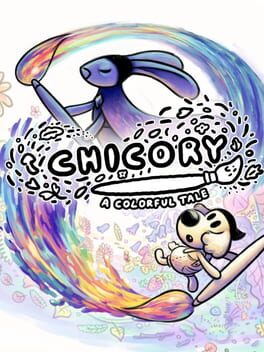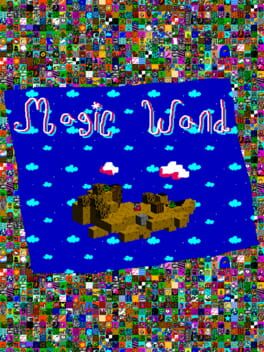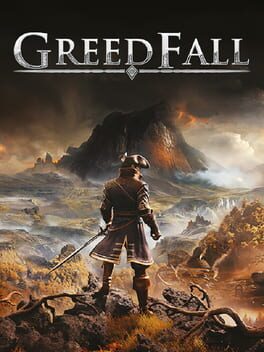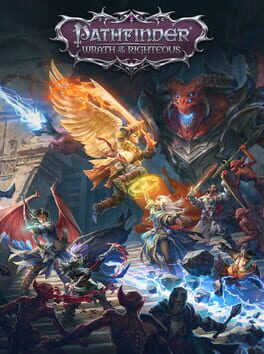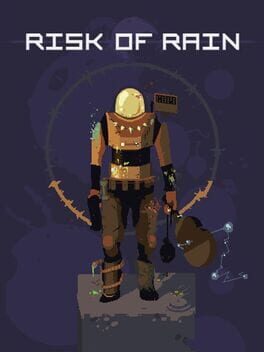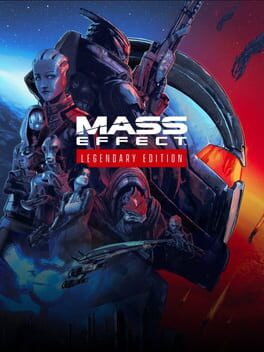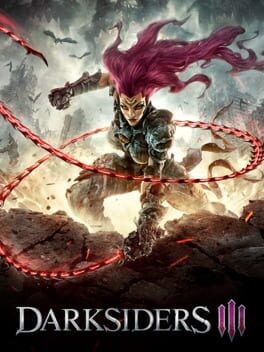Farmstink
2022
This review contains spoilers
The thing they don't tell you about Tunic is just how complete the game is. We're going to be jumping around here, but let's start with what I think is the most basic thing - the combat. In a game about puzzles and exploration, on the surface, the combat is simple. You press button and hit mans. You’ve played Zelda before, you get how this works. You get a little more into the game, you pick up some magic stuff and it adds real depth to the combat. Now you’re thinking about, ok, which magic do I use to beat this guy. You’re weaving in your magic with your hit mans attack. At this point, the system feels COMPLETE. But the thing about Tunic is, there’s always that extra level to everything. You might stumble upon this as you play, or you might discover it later in the guide when the game tells you to try hitting this little slug in a particular fashion so you can get a thing (you know what I’m talking about) – but it’s this moment of discovery, where you learn that you can combine your magic effects. It’s the same AHA feeling you get when you figure out this math problem that’s been staring at you for the past hour. There are two things going on here.
First, the game has this extra level to everything. And I mean that – mechanics (see above), story (I don’t think I fully grasp this and thus will NOT be writing about it), and exploration. Just when you think you know what Tunic is, there’s something that pops up and recontextualizes everything. Sometimes it’s apparent, as above when you get the magic. Sometimes it’s so subtle.
But that’s the second thing about Tunic. It rewards you for paying attention, and like, actually PAYING ATTENTION. I’m going to reference dark souls here because it’s a cultural touchstone and I’m lazy. I think a lot of people think that’s a video game that rewards paying attention because sen’s fortress has a lot of traps in it. I think that’s true, to an extent. You have to look at the environment, and from doing that you can intuit the danger that’s around the corner. Tunic isn’t like that at all. There’s honestly no real threat in the game – you’re probably not going to die unless it’s to the last boss. So how does Tunic force you to pay so much attention?
I’m not sure – I FEEL like it’s because it inspires so much curiosity but I don’t know how it does it. I’m going to try to break down the loop here, and maybe that’ll lead us to a conclusion. There are things you see in Tunic that you very clearly understand how to solve but you KNOW you lack the tool to do so at the moment. You see little hedges and since you’ve played video games you know you need the sword to chop them down. You see hooks sticking up from the ground and you know you need the grappling hook to get to them. You mentally note that these are places you need to come back to when you have the THING that will allow you to interact with these mechanics. Then you come across this giant ass golden door with this weird pattern on it, or these weird platforms that you keep seeing everywhere. And your gamer brain isn’t sure what these are. You believe that you lack both the tools and CONTEXT to interact with these objects, which is only half true. You have the tools, you’ve always had the tools, but what you don’t have is the context. And that context isn’t something Tunic gives you for free. The game doesn’t spell out the context for you. It gives you hints, it nudges you, but if YOU, gamer, don’t pay attention to what the game is saying then you will not build the knowledge to put these things in context.
The best puzzles are the ones where, at the start, you can only ask yourself “what’s the question?”. That’s what Tunic does so well. It prompts you, makes you think, “huh, that’s weird. I wonder what that is. I’m going to remember that”, and then, and I mean this, in a miraculous way it pays off SUBTLY. You want to dig into each mystery, because the first time you uncover one, it feels so personal. You can’t shake the feeling that you’re the first person to ever uncover this mystery in the specific way that you did. For me it was the praying mechanic at those square platforms. When I discovered that, it felt like I was breaking the game a little. It felt like I wasn’t SUPPOSED to know that yet, but since I’m such a clever boy I figured it out on my own. People like to say that Tunic is a puzzle game, but really I think it’s the first archeology game ever made.
The one downside – and I’m going to be brief here – is once you understand the Questions the game is asking you, answering them can feel lackluster or frustrating. I’m talking about the windmill, the big golden broken door. I know the answer to these questions, I know the steps I have to do to solve this, but I can’t demonstrate my knowledge without burning a lot of time. At that point it feels more like busywork and less like discovery.
Still, you’re so excited to keep discovering the puzzles that the frustrations of answering them are overshadowed (even though I will admit, I did look up the solutions to some puzzles that I inferred would take WAY TOO LONG).
You feel rewarded when you get to the end of Tunic. I don’t think it’s because the story has a moment of catharsis or whatever – at least not as written. The reward feels internal. You feel that you’ve accomplished something because you thought creatively. The game tells you just enough that your journey through it feels personal – you feel like nobody else experienced Tunic in the same way that you did. The wild part about that is, I think it’s true.
First, the game has this extra level to everything. And I mean that – mechanics (see above), story (I don’t think I fully grasp this and thus will NOT be writing about it), and exploration. Just when you think you know what Tunic is, there’s something that pops up and recontextualizes everything. Sometimes it’s apparent, as above when you get the magic. Sometimes it’s so subtle.
But that’s the second thing about Tunic. It rewards you for paying attention, and like, actually PAYING ATTENTION. I’m going to reference dark souls here because it’s a cultural touchstone and I’m lazy. I think a lot of people think that’s a video game that rewards paying attention because sen’s fortress has a lot of traps in it. I think that’s true, to an extent. You have to look at the environment, and from doing that you can intuit the danger that’s around the corner. Tunic isn’t like that at all. There’s honestly no real threat in the game – you’re probably not going to die unless it’s to the last boss. So how does Tunic force you to pay so much attention?
I’m not sure – I FEEL like it’s because it inspires so much curiosity but I don’t know how it does it. I’m going to try to break down the loop here, and maybe that’ll lead us to a conclusion. There are things you see in Tunic that you very clearly understand how to solve but you KNOW you lack the tool to do so at the moment. You see little hedges and since you’ve played video games you know you need the sword to chop them down. You see hooks sticking up from the ground and you know you need the grappling hook to get to them. You mentally note that these are places you need to come back to when you have the THING that will allow you to interact with these mechanics. Then you come across this giant ass golden door with this weird pattern on it, or these weird platforms that you keep seeing everywhere. And your gamer brain isn’t sure what these are. You believe that you lack both the tools and CONTEXT to interact with these objects, which is only half true. You have the tools, you’ve always had the tools, but what you don’t have is the context. And that context isn’t something Tunic gives you for free. The game doesn’t spell out the context for you. It gives you hints, it nudges you, but if YOU, gamer, don’t pay attention to what the game is saying then you will not build the knowledge to put these things in context.
The best puzzles are the ones where, at the start, you can only ask yourself “what’s the question?”. That’s what Tunic does so well. It prompts you, makes you think, “huh, that’s weird. I wonder what that is. I’m going to remember that”, and then, and I mean this, in a miraculous way it pays off SUBTLY. You want to dig into each mystery, because the first time you uncover one, it feels so personal. You can’t shake the feeling that you’re the first person to ever uncover this mystery in the specific way that you did. For me it was the praying mechanic at those square platforms. When I discovered that, it felt like I was breaking the game a little. It felt like I wasn’t SUPPOSED to know that yet, but since I’m such a clever boy I figured it out on my own. People like to say that Tunic is a puzzle game, but really I think it’s the first archeology game ever made.
The one downside – and I’m going to be brief here – is once you understand the Questions the game is asking you, answering them can feel lackluster or frustrating. I’m talking about the windmill, the big golden broken door. I know the answer to these questions, I know the steps I have to do to solve this, but I can’t demonstrate my knowledge without burning a lot of time. At that point it feels more like busywork and less like discovery.
Still, you’re so excited to keep discovering the puzzles that the frustrations of answering them are overshadowed (even though I will admit, I did look up the solutions to some puzzles that I inferred would take WAY TOO LONG).
You feel rewarded when you get to the end of Tunic. I don’t think it’s because the story has a moment of catharsis or whatever – at least not as written. The reward feels internal. You feel that you’ve accomplished something because you thought creatively. The game tells you just enough that your journey through it feels personal – you feel like nobody else experienced Tunic in the same way that you did. The wild part about that is, I think it’s true.
2010
one of those games where you're not sure if you don't have the right answer to the puzzle or if you're simply failing due to the clunky controls
the part where the spider chases you is tense but other than that it's kind of slow. like it just feels slow, which is fine i guess. it doesn't inspire much in me, personally.
the part where the spider chases you is tense but other than that it's kind of slow. like it just feels slow, which is fine i guess. it doesn't inspire much in me, personally.
2016
2012
I don't remember this being super profound back when I played it in 2013. Like we already knew Call of Duty was bad and secretly funded by the US government to promote the military industrial complex, and Spec Ops doesn't even go that far. And sure, there's that bit about like, hey man, YOU did that war crime. You could just like, stop playing. Ok, but you charged me money for this video game, so I'm going to play it, even if I don't agree with the character's decision. I'm not the main character in the video game. You wrote the main character. You did that.
2019
woah
This game was a love letter to the original Pathfinder adventure path. That's what I believe. The game must have been made with a sort of reverence to the AP. There's just so much here, it would take me an hour to even describe all the systems in this game, all the dialogue choices, how deep everything really is. It's an incredibly faithful adaptation of Pathfinder's tabletop mechanics, and that isn't even the most impressive part of this game. The thing that really blew me away, that actually surprised me, the thing I've really not seen in another CRPG like this, is the depths to which you could roleplay your character, and how much your roleplay actually mattered. Who you are, what you say, what you do, the world reacts to it all. Dialogue changes, events change. I was consistently impressed by how the game acknowledged and respected who my character was. There was never a choice that I remember (long ass game btw), where I thought to myself, "I don't have a way of expressing my character here".
This game is nothing short of Impressive. And yet I have to wonder what Owlcat are going to do next. The Pathfinder system has PROBLEMS, especially when you get to high level play (this stuff is documented elsewhere, I don't want to write a freaking dissertation on a 12 year old TTRPG system). The last act of this game definitely suffered from the Pathfinder system. The other issue is with the encounters. I have to compare this game to Divinity Original Sin 2 (that's how good this game is!!). Encounters in DOS2 all feel handcrafted - the same cannot be said about this game. You will fight trash mob after trash mob, as the resource grind is necessary to make boss encounters difficult (or is it?). It's a limitation of the Pathfinder system. You grind the PCs down, then they fight the boss. It's how it Works. Except this isn't very engaging for a video game. In fact, at times, it's boring. It makes me wonder what Owlcat does from here. They clearly have the chops to produce these amazing ports of tabletop APs, but I can't help but feel like they're sort of trapped. Do they continue to port these games faithfully, or do they start designing fixes? I'm not sure, but I'm excited to see what they do next. I so want these games to be something I can recommend to people in the same way I can recommend DOS2. Like, this game deserves to have a million billion fans, it's amazing. BUT! There are so many issues inherent to it that I can't.
So, for now, I'll remember fondly the time I spent with Wrath of the Righteous. I'll meet it where it's at. I'll praise it for what it is, flaws and all. And, at the end, maybe one day, Owlcat will figure out a way to make the perfect game.
This game was a love letter to the original Pathfinder adventure path. That's what I believe. The game must have been made with a sort of reverence to the AP. There's just so much here, it would take me an hour to even describe all the systems in this game, all the dialogue choices, how deep everything really is. It's an incredibly faithful adaptation of Pathfinder's tabletop mechanics, and that isn't even the most impressive part of this game. The thing that really blew me away, that actually surprised me, the thing I've really not seen in another CRPG like this, is the depths to which you could roleplay your character, and how much your roleplay actually mattered. Who you are, what you say, what you do, the world reacts to it all. Dialogue changes, events change. I was consistently impressed by how the game acknowledged and respected who my character was. There was never a choice that I remember (long ass game btw), where I thought to myself, "I don't have a way of expressing my character here".
This game is nothing short of Impressive. And yet I have to wonder what Owlcat are going to do next. The Pathfinder system has PROBLEMS, especially when you get to high level play (this stuff is documented elsewhere, I don't want to write a freaking dissertation on a 12 year old TTRPG system). The last act of this game definitely suffered from the Pathfinder system. The other issue is with the encounters. I have to compare this game to Divinity Original Sin 2 (that's how good this game is!!). Encounters in DOS2 all feel handcrafted - the same cannot be said about this game. You will fight trash mob after trash mob, as the resource grind is necessary to make boss encounters difficult (or is it?). It's a limitation of the Pathfinder system. You grind the PCs down, then they fight the boss. It's how it Works. Except this isn't very engaging for a video game. In fact, at times, it's boring. It makes me wonder what Owlcat does from here. They clearly have the chops to produce these amazing ports of tabletop APs, but I can't help but feel like they're sort of trapped. Do they continue to port these games faithfully, or do they start designing fixes? I'm not sure, but I'm excited to see what they do next. I so want these games to be something I can recommend to people in the same way I can recommend DOS2. Like, this game deserves to have a million billion fans, it's amazing. BUT! There are so many issues inherent to it that I can't.
So, for now, I'll remember fondly the time I spent with Wrath of the Righteous. I'll meet it where it's at. I'll praise it for what it is, flaws and all. And, at the end, maybe one day, Owlcat will figure out a way to make the perfect game.
2013
2022
2018
certainly a video game, and a solid one at that. that's what i think about when i think of god of war 2018 - it's really well made. i don't have anything bad to say about it, which isn't to say it's above criticism. like i could think of a couple bad things to say, but why would you. the game is so complete on every level that to talk negatively would be to nitpick. god of war 2018 was video games in 2018 - an amalgamation of video games birthed for 8th generation consoles, keeping the good and trimming the fat, showing us what a AAA game could be - an experience that any self proclaimed Video Gamer will enjoy - and a lesson that is sure not to stick with AAA studios. a game who's only flaw is a lack of invention, i think. you've shown me something really stellar, really polished, god of war 2018. but will it go down in the hall of fame? i don't think so, but you can still be proud of your election to the Hall of Very Good. congratulations
2019
2019
Disco Elysium is a smart game, but not in the way that's all like "ooooh look at me, look at how clever I am. I know I'm a video game!!". Disco Elysium doesn't know it's a video game. It might even think it's a book, sometimes.
So the main idea of the game is that you're a cop. What kind of cop you are is up to you - you can be an art cop, or a sorry cop, or a sad cop. You can be a fascist too but I think that's sort of prewritten into your being a cop. At it's core, Disco Elysium is a game about Politics. It explores the nature of what it means to be a cop, what it means to have a police force in general. It also talks about communism and stuff but that's not as important as the cop thing. Throughout the game you constantly abuse your cop powers and never once face a repercussion for you actions. You walked up to a random stranger and told her that her husband was dead because the voices in your head told you so? Not an issue, you're a cop. You can trust cops.
The game is funny. What can I say? The writing made me laugh. I don't usually like "funny" things. Like the Office isn't that great. Someone once told me to listen to a podcast called "Grandma's Virginity Podcast" because they thought it was funny. Well, I didn't think it was funny. But Disco Elysium is funny.
I guess there's gameplay? Like you go around and click on things. It's cool that there's no real combat system, but you can still die. Which also doesn't mean a whole lot, like you can just reload your save. Maybe the game would've been better if you couldn't die? But some of the moments where I died, I really enjoyed them.
I think that's the big secret of Disco Elysium. The big picture of the game isn't that great. Like the Main Story was ok, it was fine. It meant a lot and it said things. But the parts that I really remember are the smaller moments. Debating if I should sympathize with a race realist because he's blocking my way, dammit, and I'm not strong enough to beat him in a fist fight, and the voices in my head are telling me "hey maybe this guy has a point" (he doesn't). Or the bit where I shot my gun at a child because like, no one talks to me that way. I'm a cop, and an unhinged one at that.
That seems like a strange place to end the review.
So the main idea of the game is that you're a cop. What kind of cop you are is up to you - you can be an art cop, or a sorry cop, or a sad cop. You can be a fascist too but I think that's sort of prewritten into your being a cop. At it's core, Disco Elysium is a game about Politics. It explores the nature of what it means to be a cop, what it means to have a police force in general. It also talks about communism and stuff but that's not as important as the cop thing. Throughout the game you constantly abuse your cop powers and never once face a repercussion for you actions. You walked up to a random stranger and told her that her husband was dead because the voices in your head told you so? Not an issue, you're a cop. You can trust cops.
The game is funny. What can I say? The writing made me laugh. I don't usually like "funny" things. Like the Office isn't that great. Someone once told me to listen to a podcast called "Grandma's Virginity Podcast" because they thought it was funny. Well, I didn't think it was funny. But Disco Elysium is funny.
I guess there's gameplay? Like you go around and click on things. It's cool that there's no real combat system, but you can still die. Which also doesn't mean a whole lot, like you can just reload your save. Maybe the game would've been better if you couldn't die? But some of the moments where I died, I really enjoyed them.
I think that's the big secret of Disco Elysium. The big picture of the game isn't that great. Like the Main Story was ok, it was fine. It meant a lot and it said things. But the parts that I really remember are the smaller moments. Debating if I should sympathize with a race realist because he's blocking my way, dammit, and I'm not strong enough to beat him in a fist fight, and the voices in my head are telling me "hey maybe this guy has a point" (he doesn't). Or the bit where I shot my gun at a child because like, no one talks to me that way. I'm a cop, and an unhinged one at that.
That seems like a strange place to end the review.
2021
Mass Effect is back and guess what? It's like, pretty much what I remember. And what I remember fuckin RULES.
Mass Effect is a series that lives outside of time as we know it. It is eternal. The first real video game saga. A lot of people like to compare Mass Effect to Star Wars. This is incorrect. It fails to grasp the true magnitude of how great, how impactful, how everlasting Mass Effect is. Mass Effect IS the Odyssey of video games. It's Beowulf; it's Canterbury Tales; it's the Magna Carta; it's the Rosetta Stone. It's the Expanse BEFORE people knew that they wanted the Expanse.
Mass Effect 1 created video games. You can actually draw a line of video game history pre Mass Effect and post Mass Effect. Mass Effect 1 came out in 2007. According to Eurogamer.net, the best video game of 2006 was The Legend Of Zelda: Twilight Princess. The Legend of Zelda: Twilight Princess was NOT a video game; it was a 26 hour long tutorial.
What was the best game of 2008? Mass Effect 2. 2009? Mass Effect 2. 2021? Mass Effect 2.
Mass Effect 2 IS a perfect sequel AND a perfect AAA game. It came back with a bigger budget, and, in a move that most developers still cannot replicate, Bioware actually used it to make the game BETTER. The combat is tighter. The menus feel better. There are more companions AND they're all as good, if not better, than the companions from the first game (no easy task).
Mass Effect 2 was the peak of downloadable content. There has never been a piece of downloadable content that reaches the quality of Lair of the Shadow Broker. I am in love with Liara T'Soni. I'm going to ask her to marry me, and she will say yes. Do you know what kind of DLC came out after Lair of the Shadow Broker? Fortnite's battle pass. Fornite is a game for children. You can't have sex with aliens in Fornite. You can in Mass Effect 2.
Mass Effect 3 succeeds in the impossible task of wrapping up a trilogy, and only takes a slight stumble toward the end. Honestly, the end isn't even that bad. It's just that we're so used to Mass Effect figurately and literally knocking it out of the park that anything short of perfect feels subpar. And the ending is fine. It works if you think about it for a couple of seconds. You owe Mass Effect a couple of seconds of consideration. You know what didn't wrap up a trilogy in the right way? Those new Star Wars movies. Now I haven't seen those movies, but the way people talk about them, let me just say that Mass Effect 3 does it way better than Episode 9. The multiplayer part was surprisingly good too.
Mass Effect is the most influential video game series of all time. Play through Mass Effect 1, and you will realize that Breath of the Wild would have never existed with out it. Link is an evolution of the Mako. The planetary exploration speaks for itself. Gears of War would have never gotten sad if Mass Effect didn't tell people that you could have a narrative in your third person shooter video game. Mass Effect literally created Spec Ops the Line, and you love that game.
Mass Effect is a series that lives outside of time as we know it. It is eternal. The first real video game saga. A lot of people like to compare Mass Effect to Star Wars. This is incorrect. It fails to grasp the true magnitude of how great, how impactful, how everlasting Mass Effect is. Mass Effect IS the Odyssey of video games. It's Beowulf; it's Canterbury Tales; it's the Magna Carta; it's the Rosetta Stone. It's the Expanse BEFORE people knew that they wanted the Expanse.
Mass Effect 1 created video games. You can actually draw a line of video game history pre Mass Effect and post Mass Effect. Mass Effect 1 came out in 2007. According to Eurogamer.net, the best video game of 2006 was The Legend Of Zelda: Twilight Princess. The Legend of Zelda: Twilight Princess was NOT a video game; it was a 26 hour long tutorial.
What was the best game of 2008? Mass Effect 2. 2009? Mass Effect 2. 2021? Mass Effect 2.
Mass Effect 2 IS a perfect sequel AND a perfect AAA game. It came back with a bigger budget, and, in a move that most developers still cannot replicate, Bioware actually used it to make the game BETTER. The combat is tighter. The menus feel better. There are more companions AND they're all as good, if not better, than the companions from the first game (no easy task).
Mass Effect 2 was the peak of downloadable content. There has never been a piece of downloadable content that reaches the quality of Lair of the Shadow Broker. I am in love with Liara T'Soni. I'm going to ask her to marry me, and she will say yes. Do you know what kind of DLC came out after Lair of the Shadow Broker? Fortnite's battle pass. Fornite is a game for children. You can't have sex with aliens in Fornite. You can in Mass Effect 2.
Mass Effect 3 succeeds in the impossible task of wrapping up a trilogy, and only takes a slight stumble toward the end. Honestly, the end isn't even that bad. It's just that we're so used to Mass Effect figurately and literally knocking it out of the park that anything short of perfect feels subpar. And the ending is fine. It works if you think about it for a couple of seconds. You owe Mass Effect a couple of seconds of consideration. You know what didn't wrap up a trilogy in the right way? Those new Star Wars movies. Now I haven't seen those movies, but the way people talk about them, let me just say that Mass Effect 3 does it way better than Episode 9. The multiplayer part was surprisingly good too.
Mass Effect is the most influential video game series of all time. Play through Mass Effect 1, and you will realize that Breath of the Wild would have never existed with out it. Link is an evolution of the Mako. The planetary exploration speaks for itself. Gears of War would have never gotten sad if Mass Effect didn't tell people that you could have a narrative in your third person shooter video game. Mass Effect literally created Spec Ops the Line, and you love that game.
2018

